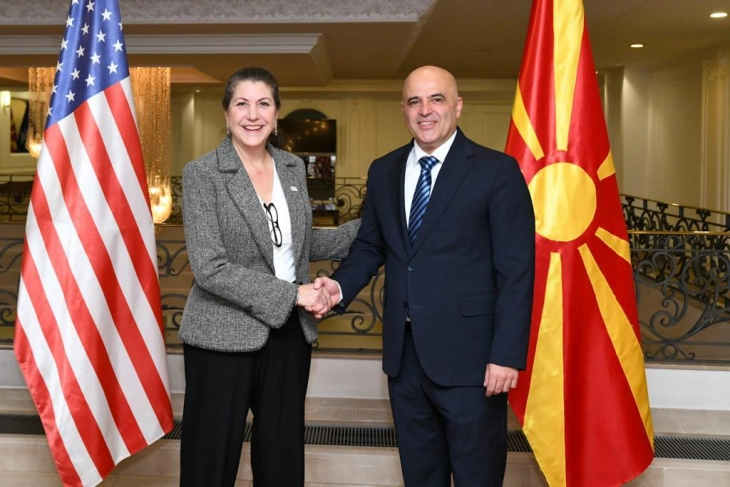Prime Minister Dimitar Kovachevski recently convened with Erin Elizabeth McKee, Assistant Administrator in the Bureau for Europe and Eurasia (E&E) at USAID. Their extensive discussions revolved around North Macedonia’s pivotal energy transition and regional energy autonomy, alongside the critical reforms crucial for the country’s European Union accession.
Both parties expressed contentment regarding the formalization of the partnership between USAID and Greece, aimed at expediting the integration of the regional energy market through collaborative efforts. Emphasizing the urgency, they agreed on the imperative for Macedonia to swiftly integrate into the European energy market. Concrete steps have been initiated to ensure the country’s complete energy independence, as highlighted in a government press release. Kovachevski elaborated on Macedonia’s strides in this sphere, including ongoing plans and projects to fortify energy autonomy. Notably, the country has seen notable progress in energy generation, with photovoltaic plants producing substantial electricity sufficient for a significant number of households.
In a significant development for 2023, after extensive planning and numerous attempts, the Government selected Public Power Corporation S.A – Greece and its consortium partner for the construction of the hydropower plant Chebren, marking an investment of EUR 1 billion. This venture involves a sizable reversible hydropower plant, poised to be the country’s largest electricity producer and a crucial resource for balancing surplus electricity from other renewable energy capacities.
McKee stressed the importance of intensifying efforts to invest in an efficient, self-reliant energy infrastructure conducive to the energy transition, ensuring both independence and security. USAID pledged to continue providing essential support to Macedonia, implementing programs directed at bolstering economic productivity, energy independence, and combating corruption.
The meeting underscored USAID’s influential role in fortifying democratic processes, institutions, civil society, and contributing significantly to economic growth and education.
Recognizing the Macedonian government’s strides in pursuing European integration, both parties emphasized the need to sustain progress toward full EU membership. Kovachevski expressed gratitude for the enduring political and economic partnership, acknowledging the United States as Macedonia’s steadfast ally for over three decades.




Comments are closed for this post.